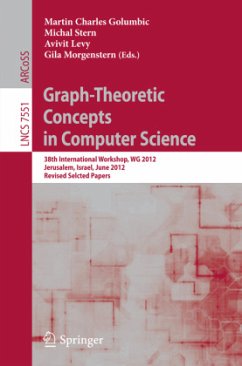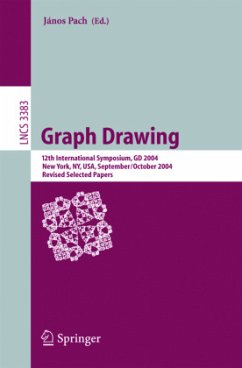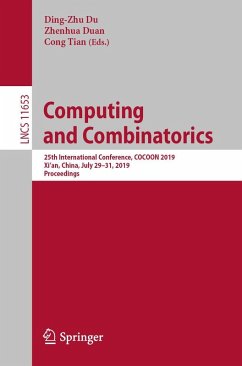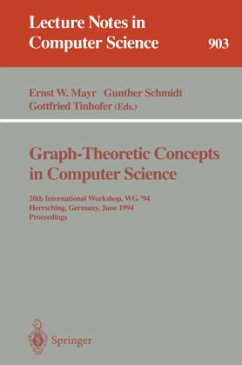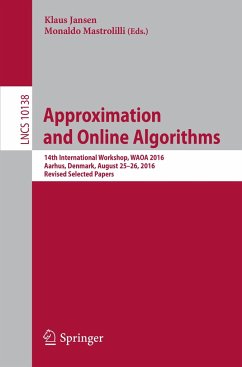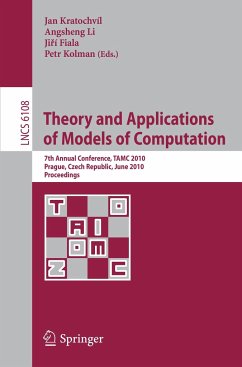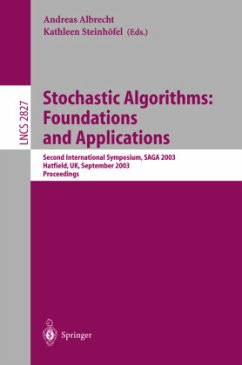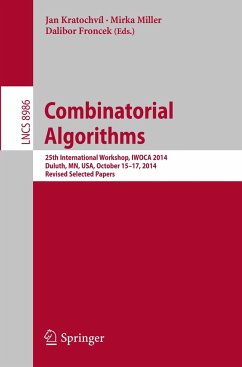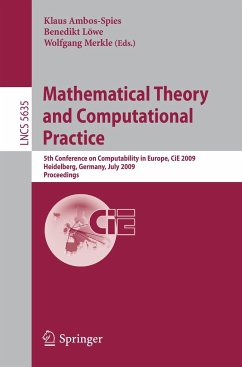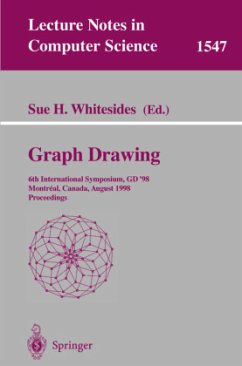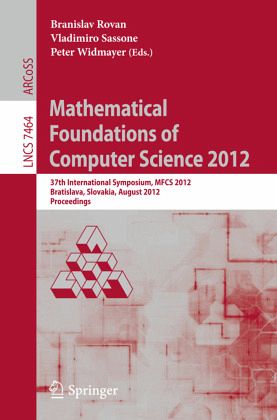
Mathematical Foundations of Computer Science 2012
37th International Symposium, MFCS 2012, Bratislava, Slovakia, August 27-31, 2012, Proceedings
Herausgegeben: Rovan, Branislav; Sassone, Vladimiro; Widmayer, Peter

PAYBACK Punkte
43 °P sammeln!
This volume constitutes the refereed proceedings of the 37th International Symposium on Mathematical Foundations of Computer Science, MFCS 2012, held in Bratislava, Slovakia, in August 2012. The 63 revised full papers presented together with 8 invited talks were carefully reviewed and selected from 162 submissions. Topics covered include algorithmic game theory, algorithmic learning theory, algorithms and data structures, automata, formal languages, bioinformatics, complexity, computational geometry, computer-assisted reasoning, concurrency theory, databases and knowledge-based systems, founda...
This volume constitutes the refereed proceedings of the 37th International Symposium on Mathematical Foundations of Computer Science, MFCS 2012, held in Bratislava, Slovakia, in August 2012. The 63 revised full papers presented together with 8 invited talks were carefully reviewed and selected from 162 submissions. Topics covered include algorithmic game theory, algorithmic learning theory, algorithms and data structures, automata, formal languages, bioinformatics, complexity, computational geometry, computer-assisted reasoning, concurrency theory, databases and knowledge-based systems, foundations of computing, logic in computer science, models of computation, semantics and verification of programs, and theoretical issues in artificial intelligence.




